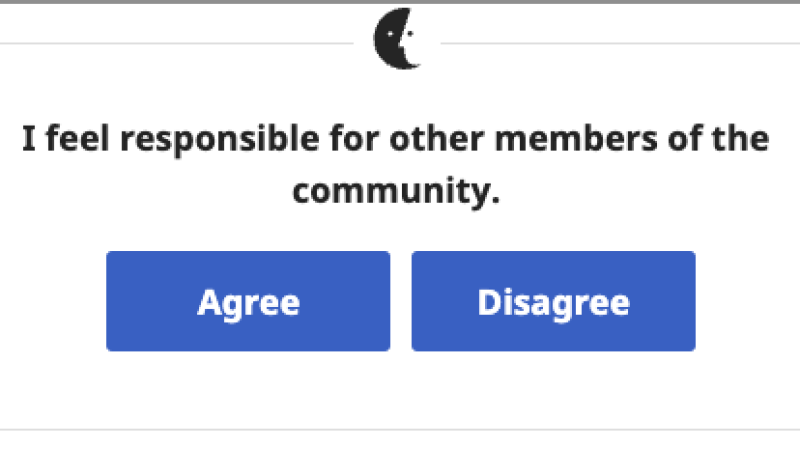My Country Talks events have matched more than 70,000 pairs of political opposites to meet and talk about the things that divide them and unite them.
Their mission is to connect people all over the world to discuss the issues that divide them, and the issues that unite them. Their methodology can reduce polarization and build empathy through the power of dialogue, according to the mission statement of My Country Talks.
One of the impacts of this methodology is 60% of participants on average say they intend to stay in touch with their conversation partner after the event ends.
Armin Falk, Professor of Economics at the University of Bonn, conducted a study on the impact of Germany Talks 2018. He and his team measured the effect of the conversations on participant's views and tendencies toward polarization.
"Even just a two-hour conversation between people with completely different political views is enough to weaken polarization. The meetings helped dismantle prejudices against those who think differently and, after the conversations, participants considered people with other views on average to be less incompetent, less malicious and less poorly informed."
With over 30 countries who have participated and used this method, there have been over 200 000 participants resulting in 70 000 matches.
You’ll find out a little more about what these numbers mean in the linked conversation to with Madeleine Ghatavi, who is running a Smithers edition of My Country Talks called Smithers Talks.
Madeleine is a 17 year old student at Pearson College on Vancouver Island. Pearson is a two-year, pre-university school for students from over 150 countries who live, study and learn together pursuing the International Baccalaureate and an outdoor-oriented experiential education.
Madeleine’s main interest of study is Political Science, which marries perfectly with her interest in connecting people from opposite ends of a political spectrum to meet via Smithers Talks.


